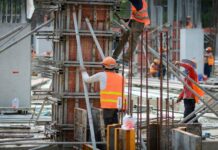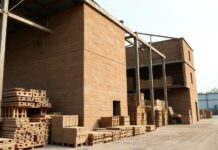In a GCC Contracting Industry report by Kuwait Financial Centre, or Markaz, it has been revealed that there are currently projects worth more than $900bn at various stages of development in the GCC, which has been less affected by economic and regional events in other parts of the world.
In addition, in an executive summary of its analysis of the potential opportunities in the contracting arena, across industry verticals, in terms of project value and status, Markaz has highlighted real estate projects as accounting for a significant $516bn of this total value.
Particularly key trends identified in the region are the urbanisation of a young, growing population, influx of expatriate labor, and relaxation of rules allowing foreign ownership of real estate, all of which have led to increased demands for affordable housing.
Focus has therefore shifted from catering to higher income groups to catering to middle and lower income groups, while Public-Private Partnership is an avenue that has yet to be fully explored in accommodating this shifting property demand.
Another development is the heavy investment of the GCC countries in infrastructure development across many verticals, both to improve accessibility within the region, and to diversify the regional economies away from the oil and gas sector.
This expansion is supported by rising government surpluses, enhanced spending measures, which is generating plentiful opportunities for both local and international contracting players, and resulting in increased competition, and a challenging business environment.
While the overall outlook for the industry is optimistic, it faces challenges within and outside the GCC region, as lower growth forecasts for major economies and slower recovery of European countries could affect oil prices and the spending pattern of the GCC countries.
Further caveats are the rising costs, shortages of skilled and unskilled labor, and supply chain bottlenecks (as the GCC is largely dependent on imported machinery, raw materials and labor), which could all lead to lower net profit margins in the industry.
As diligence measures have strengthened, banks have been enforcing stricter collateral requirements, and stringent covenants on project cash flows to safeguard their equity. However, attracting foreign investments remains a challenge due to information asymmetry and poor legal enforcement.
Despite these challenges, the report notes, the contracting industry is projected to post strong growth and has enormous potential for further growth in the coming years due to the undeniable vastness of the number of projects being planned and executed.
In a GCC Contracting Industry report by Kuwait Financial Centre, or Markaz, it has been revealed that there are currently projects worth more than $900bn at various stages of development in the GCC, which has been less affected by economic and regional events in other parts of the world.
In addition, in an executive summary of its analysis of the potential opportunities in the contracting arena, across industry verticals, in terms of project value and status, Markaz has highlighted real estate projects as accounting for a significant $516bn of this total value.
Particularly key trends identified in the region are the urbanisation of a young, growing population, influx of expatriate labor, and relaxation of rules allowing foreign ownership of real estate, all of which have led to increased demands for affordable housing.
Focus has therefore shifted from catering to higher income groups to catering to middle and lower income groups, while Public-Private Partnership is an avenue that has yet to be fully explored in accommodating this shifting property demand.
Another development is the heavy investment of the GCC countries in infrastructure development across many verticals, both to improve accessibility within the region, and to diversify the regional economies away from the oil and gas sector.
This expansion is supported by rising government surpluses, enhanced spending measures, which is generating plentiful opportunities for both local and international contracting players, and resulting in increased competition, and a challenging business environment.
While the overall outlook for the industry is optimistic, it faces challenges within and outside the GCC region, as lower growth forecasts for major economies and slower recovery of European countries could affect oil prices and the spending pattern of the GCC countries.
Further caveats are the rising costs, shortages of skilled and unskilled labor, and supply chain bottlenecks (as the GCC is largely dependent on imported machinery, raw materials and labor), which could all lead to lower net profit margins in the industry.
As diligence measures have strengthened, banks have been enforcing stricter collateral requirements, and stringent covenants on project cash flows to safeguard their equity. However, attracting foreign investments remains a challenge due to information asymmetry and poor legal enforcement.
Despite these challenges, the report notes, the contracting industry is projected to post strong growth and has enormous potential for further growth in the coming years due to the undeniable vastness of the number of projects being planned and executed.






























